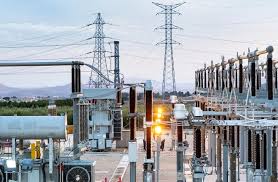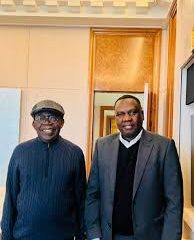Business
Nwoko Advocates AI-Powered Surveillance Against Crude Oil Theft
The Chairman, Senate Ad- hoc Committee on Crude Oil Theft, Senator Ned Nwoko, has stressed the need for the implementation of a robust technological framework to curb crude oil theft in the country.
Nwoko, who stated this during an interview with newsmen in Abuja, said crude oil theft in the Niger Delta region had long plagued the nation, resulting in severe economic losses, environmental degradation, and national insecurity.
He said as a country heavily reliant on oil revenues to fund its budget and development, it was imperative that its national assets are treated with the seriousness they deserve, adding that it was time to reclaim control of its oil assets.
He, therefore, advocated for the deployment of AI-Powered Surveillance ranging from drones to predictive analytics to monitor the nation’s pipelines and facilities.
Nwoko also sought for the strengthening of the country’s regional security, noting that oil theft thrives in insecurity.
He said, “Parallel investment in regional peace and stability is crucial. The host communities must be incorporated into the system, thereby making them have a sense of belonging in the oil and gas sector by engaging them into meaningful infrastructural development.
‘’There is also the need for collaboration with tech firms. We must actively engage global and local tech companies with proven capacity to deliver real-time monitoring and risk detection.
‘’Institutional commitment is also needed to curb crude oil theft; NNPCL and other stakeholders must be held accountable.
‘’Monitoring should not just be technological, it must include institutional transparency.
According to him, adopting Saudi Arabia’s corporate social responsibility method in collaborating with the oil and gas host communities would also go a long way in tackling crude oil theft.
‘’If Nigeria adopts these strategies and embraces AI-driven innovation, we can reclaim control of our oil assets, meet our OPEC quota, and catalyse real economic development”, the lawmaker said.
While insisting that Nigeria can no longer pretend not to know the cause or the cure of its problems, Nwoko stated “it’s time to stop looking away. We must be intentional, patriotic, and honest.
“We must emulate nations whose progress is not mythical but practical. Let us do what is right for Nigeria, for now and for the future.
‘’The NNPCL and the various international and National Oil Companies (IOCs and NOCs) operating in the sector must act decisively. Under the supervision of patriotic leadership, they must adopt advanced technological systems to protect our oil infrastructure and deter sabotage.’’
Nwoko recalled that in 2022, the then Group Managing Director of the NNPCL, Mele Kyari, assured Nigerians of efforts to adopt a model similar to that of the Saudi Aramco to combat oil theft and pipeline vandalism.
He said Kyari had admitted then that while Nigeria’s system was not yet as advanced as Aramco’s, the goal was to eventually match their level of sophistication.
‘’Sadly, we are still far from that benchmark. As a nation, we must summon the courage to call a spade a spade.we cannot continue with half-measures. Every meaningful step that can rescue this country from the stranglehold of economic sabotage must be taken without delay.
‘’To move forward, we must learn from countries that have gotten it right. How did developed nations build systems that effectively secure their oil and gas infrastructure? What strategies and technologies do they use?” he queried.
Business
Abia Takes Over Electricity Supply In 8 LGAs

Business
‘Gas Shortages, Infrastructure Deficiency, Bane Of Power Sector Growth’

Business
NUPRC Blames Out Service Trunk Lines On Vandalism … As Rivers NUJ Promises Development Journalism

-

 Sports3 days ago
Sports3 days agoWTT: Lind Praises Lagos fans, vows to return
-

 Niger Delta3 days ago
Niger Delta3 days agoD’Gov Lauds Intervention Programmes Of CCN
-

 Sports3 days ago
Sports3 days agoInjured Salgado thanks Falcons for support
-

 Politics3 days ago
Politics3 days agoTinubu Healthier Than Most Leaders In Developed Countries – Bwala
-

 Sports4 days ago
Sports4 days agoNigerian wins British Irish Para Badminton Int’l
-

 News3 days ago
News3 days agoShippers Council Boss Cautions Industries on Container Deposits Refunds.
-

 News3 days ago
News3 days agoOSPAC Boss Sues For Peace
-

 News3 days ago
News3 days agoRivers Verification Exercise ‘ll Flush Out Ghost Workers -HoS … Allays Fear Of Salary Delay


